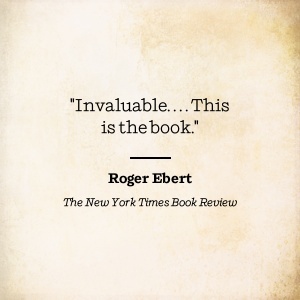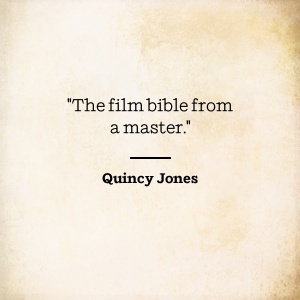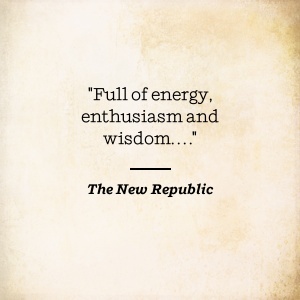Customer Services
Copyright © 2025 Desertcart Holdings Limited


Full description not available



F**X
Delightful.
As has been abundantly stated by other reviewers, this is an interesting book for both movie lovers & movie makers. It is eminently readable, in a flowing, non-technical style that is surprisingly effective at delivering practical information about Lumet's filmmaking choices & philosophy through the decades of a legendary career.Many how-to manuals seem to put the cart before the horse. Refreshingly, rather than providing instruction in equipment-driven decision making [here's how you use this particular lens, camera, fill light, etc.], Lumet talks about his story-telling goals then how he worked with his team to identify the proper technology to achieve them, resulting in such stylistically varied successes as the hyper-real video & dialog quality of "Dog Day Afternoon" & the Rembrandt-esque look of "The Verdict".This book has a fly-on-the-wall quality that almost makes you feel like you are participating in a long dinner conversation where the filmmaker discusses his day, reliving his experiences, revisiting his ideas & choices, evaluating whether they worked or not, even racking on the unprofessional Teamster who made him late to rehearsal, then pillaged the craft services cart.Something that hasn't been stated by other reviewers is how remarkably humble the author comes off. Far from validating the "auteur" status that many would grant him, Lumet appears to have a sincere appreciation for the complex team effort that results in a major motion picture, rather than an inflated perception of the supremacy of the director's role. He is extremely knowledgeable about all aspects of the filmmaking process & manages to share that knowledge clearly & concisely. He has profound respect for the contributions of the players who typically get nothing but abuse: the studio execs, writers, post-production, the stars.Lumet even seems honestly enraptured by the emergent qualities that blossom from a group effort where "everyone is making the same movie", & he takes his responsibilities for vision, coordination & budgeting very seriously.This guy just comes off as the consummate professional & his book is a joy to read.
E**K
Really great read.
Insanely informative, amazing insight, and while the last few chapters felt a bit rushed in terms of speeding by the post production, the last few pages really brought it home.
R**H
FOUR STARS...FOR A FIVE-STAR BOOK WHEN IT WAS FIRST PUBLISHED.
Whether you should buy this book or not depends on what kind of movie-goer you are. Are you a "fan"--particularly of "movie stars"? Like to read the political, and interpersonal conflicts on set? Want to read about newer (post 2000) movies? This book is not for you.But if you want to know more about the nuts-and-bolts of movie-making and the challenges most movies present from first script-reading through to release and distribution, then this is your book.If you remember fondly movies such as Network, 12 Angry Men and Murder on the Orient Express, this is your book, because the late Sidney Lumet, the director who helped create those movies and many others, is the author. He tells his tales of movie-making agony and ecstasy in a wonderful way, combining information and entertainment.The book is almost 25 years old now. Things have changed. So, one star docked from a five-star book first published in 1995. I doubt very much that sound technicians "roll tape" (1/4 inch magnetic tape, that is) any more. A whole fascinating chapter is devoted to "Rushes." I suspect that most directors don't huddle in a screening room, biting their nails, to view what they've shot the day before. Today, they see digital "footage" on video screens set up ten feet from the set, immediately after the scene is shot, making a horrifically costly days-later re-shoot almost a non-issue. That one technological change has changed production dynamics enormously. And hats off because this reprint gives you the man's entire filmography, to his final picture in 2007.Never mind. While it's fun to read how it "used to be," 80% of this book is STILL "the way it is," and a lot of it will remain unchanged as long as people such as Sidney Lumet shout (or whisper!) "Action..."Lumet made a few superior movies, many very good movies, and some that failed critically or financially--or both. And he tells you why. He's that honest. And I guarantee you that you will never see ANY movie quite the same way again. I also guarantee that many readers will want to see Lumet movies a 2nd time and will want to watch those they've never seen.That's part of the fun, too.
J**N
Engrossing and engaging page-turner
I received Making Movies at around noon today, and am writing this a bit after six PM, having finished the entire book. Lumet was a man who loved movies, loved working on movies, and it shows in every word. He takes the reader through every stage of making a movie - pre to shooting to post and then some. Utterly captivating for a small-time filmmaker like myself, but even if you're just a fan, there is much to learn and be entertained by here. Highly recommended for anyone even remotely involved in filmmaking, and also recommended to anyone who wants to learn more about the tremendous work, passion, and resolve it takes to make a movie.
Trustpilot
1 week ago
3 weeks ago